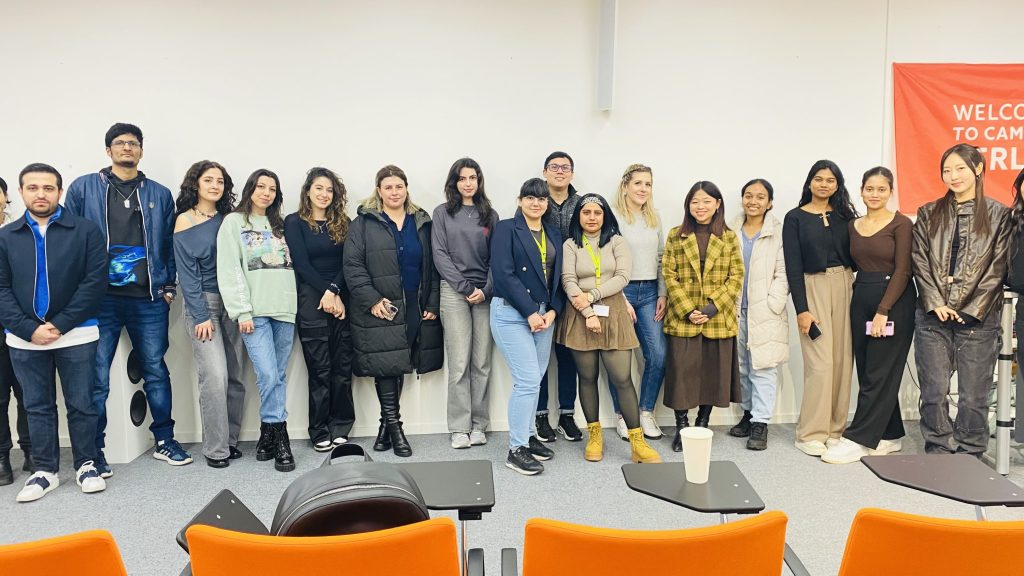
MSc in Germany: A Complete Guide for International Students
Pursuing a master’s degree abroad can transform your life, and Germany — ranked the best place to study abroad in Europe in 2024 — stands out time and time again as a top choice for international students seeking quality higher education. With its cutting-edge education system, robust job market, and student-friendly culture, Germany draws thousands of students each year. The country hosts 2.8 million students, including 400,000 international students, 49,000 of whom were Indian in 2023/2024 alone. This guide covers everything you need to know about pursuing an MSc in Germany, from eligibility requirements to costs and visa processes.

Why Study MSc in Germany?
Germany stands out as a higher education leader, offering an exceptional combination of academic excellence and affordability. A master’s study in Germany is particularly attractive because of its wide range of English-taught programmes and strong industry connections, especially in high-demand fields like business, engineering, and IT.
Germany’s strong economy and need for skilled professionals also create excellent opportunities to build your career after graduation.
How Long Is a Master’s Degree in Germany?
A master’s degree in Germany typically takes one to two years to complete, depending on your chosen programme and study format. Most full-time programmes run for two years (four semesters), while accelerated or part-time options usually range from twelve to eighteen months. Research-focused programmes might take a bit longer if they include an extensive thesis component, while applied programmes at Universities of Applied Sciences (Fachhochschulen) emphasise hands-on training and can often be finished in 18 months.
Gisma provides both flexible options across various programmes, making it a solid choice for students who value adaptability in their studies.
Benefits of Pursuing a Master’s in Germany
Pursuing an MSc in Germany offers numerous advantages:
- European Access: Your German visa opens doors to all 29 Schengen Area countries, giving you incredible mobility across Europe.
- English-Taught Programmes: Many German universities deliver programmes in English, and Gisma provides additional access to corporate partners within English-speaking global organisations.
- Strong Career Prospects: Germany’s 18-month post-study work visa lets graduates tap into a plentiful job market, especially in high-demand STEM fields.
- Economic Stability: Germany ranks 4th for earnings, job security, and employment in the OECD’s Better Life Index, ensuring solid career foundations.
- An Innovation Hub: Ranked #2 globally for entrepreneurship by the World Population Review, making it ideal for aspiring business leaders.
Eligibility Criteria for Applying to a Master’s in Germany
To enrol in a master’s degree in Germany, international students must meet the following requirements:
- Bachelor’s Degree: A recognised undergraduate degree in a related field, typically with a minimum CGPA of 6.5/10 or 65%.
- Language Proficiency: For English-taught programmes, a minimum IELTS score of 6.0 or TOEFL score of 80 is required.
- APS Certificate: Indian students need a Academic Evaluation Centre (APS) certificate to verify academic credentials.
- Additional Requirements: Some programmes may request work experience, a CV, or an interview, but GRE/GMAT scores are typically not mandatory.
Why Germany Is a Top Destination for International Students
Germany has become one of the most popular destinations for international students, offering a great combination of academic excellence, hands-on experience, and a welcoming environment for students from around the world. German universities offer global recognition, with programmes like Gisma’s Global MBA holding prestigious AMBA accreditation since 2011, credentials that employers worldwide highly value.
Future prospects look even brighter with the German government committing up to €120 million through 2028 to support international graduates through enhanced student services, career transition assistance, and German language training programmes.
How to Apply for an MSc in Germany
Applying for a master’s degree in Germany usually involves a straightforward process, though requirements vary by university. Key documents include:
- Academic transcripts and degree certificates.
- Proof of language proficiency (IELTS/TOEFL or TestDaF/DSH).
- Statement of Purpose (SOP) and Letters of Recommendation (LORs).
- Resume/CV highlighting relevant experience.
- APS certificate for Indian students.
You should check specific programme deadlines, typically three to four months before the summer or winter intake.
Step-by-Step Application Process for Indian Students
Indian students looking to study in Germany can follow these steps:
- Research Programmes and Universities: Identify programmes aligning with your academic and career goals. Use resources like the DAAD database or directly on Gisma’s website to explore options.
- Prepare Documents: Gather transcripts, SOP, LORs, and language test scores. Obtain an APS certificate.
- Submit Applications: Apply through your educational advisor or through the university’s portal. Note the deadlines for summer or winter intakes and prepare in advance.
- Await Admission: Universities typically respond within four–twelve weeks. Use this time to research visa requirements and accommodation.
- Apply for Visa: Schedule an appointment with the German Consulate and submit required documents.
Popular Master Programmes and Specialisations for International Students
Germany offers a wide range of master’sprogrammes, with popular specialisations including:
- Computer Science and IT.
- Business and Management.
- Natural Sciences.
- Engineering.
- Arts and Design.
- Leadership and Innovation.
Cost of Studying and Living in Germany
Studying and living in Germany can be quite affordable for international students, especially when compared to other popular study destinations like the UK or the US.
The estimated monthly cost of living in Berlin is between €800 and €1,200, while in Potsdam, it’s slightly lower, ranging from €700 to €1,100. This includes rent, food, transportation, and other expenses.
At Gisma, the total tuition fees for a masters in Germany ranges from €15,500 to €24,200, depending on your chosen programme and nationality. The Global MBA costs €18,000 in total, while Double Degree programmes range between €20,500 and €25,500. To help make studies more affordable, Gisma offers various discounts and flexible payment options.
Scholarships and Financial Aid for MSc Students
As aforementioned, Gisma provides plenty of offers anddiscounts. These include:
Siblings and Spouse Discount
To support families who learn together. Gisma offers a 35% discount on all programmes for siblings or spouses of enrolled students.
- Eligibility: Sibling or spouse of an enrolled student.
- Terms: Full annual fee must be paid before orientation; cannot be combined with other offers; proof of relationship (e.g., marriage or birth certificate) required.
Women in Tech Scholarship
Empowering the next generation of women in technology, Gisma offers the Women in Tech Scholarship to exceptional female applicants for the following programmes:
- MScc Data Science, AI and Digital Business.
- MEng Computer Science.
Each year, Gisma awards:
- Four full (100%) scholarships.
- Twelve partial (50%) scholarships.
Visa Requirements for International Students
Non-EU students require a German Student Visa. Required documents include:
- Valid Passport.
- Three Passport Photos (with biometric specifications).
- Proof of Finances.
- Letter of Admission from a German Institution (Gisma).
- Academic Certificates.
- Proof of Health Insurance (for students from countries outside the European Union).
- Proof of English Language.
- Residence Permit Fees.
Processing takes four to twelve weeks, so you must apply early. You should also check with the German embassy or consulate in your country of origin for more information on specific visa requirements and processes for obtaining a visa.
Why International Students Prefer Gisma for Their MSc in Germany
International students choose Gisma for a master’s in Germany because of its global perspective, academic quality, and solid industry ties.
With students from over 90 countries and all programmes delivered in English, Gisma creates a genuinely international learning experience. It’s a state-recognised University of Applied Sciences with full degree-awarding authority, backed by partnerships with major English-speaking companies throughout Germany.
It also has small class sizes and professors who bring both academic credentials and real industry experience.
Conclusion
Germany is a premier destination for international students seeking a master’s degree in Germany. With its diverse English-taught programmes and strong career prospects, it’s no surprise that thousands choose to study in Germany each year to propel their careers.
By understanding eligibility, application processes and visa requirements, you can embark on a rewarding academic journey. You can explore programmes at Gisma to start your MSc study in Germany today and take the first step toward a global career.
Frequently Asked Questions
Can I study MSc in Germany in English?
Yes. All Gisma programmes, like the Double Degree MSc International Business Management programme, are taught in English.
Do I need to know German to apply for an MSc in Germany?
No, German is not required for most programmes, but this is especially true for Gisma’s English-taught programmes, though basic German definitely helps with daily life.
Is GRE or GMAT required for MSc admission in Germany?
GRE/GMAT is not typically required in Germany, though some programmes may request work experience.
When should I start the MSc application process?
Begin twelve to eighteen months in advance to prepare documents and meet visa deadlines. the challenges of today’s data-driven world – and help you lead the way in shaping its future.

About the Author James
Want to explore more?